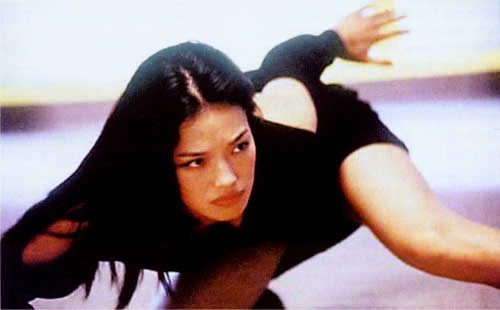VII. Pragmatic Reading

Scarcity and Value
It is well understood that in economies large
and small extending to the personal scarcity increases value.
When applied to film, it is evident that the ordinary or typical may be
experienced as documentary. Film texts that successfully engage the
spectator provide opportunities to look at persons, actions, locations
or objects to which access is ordinarily restricted. When ordinary
or mundane elements are present, contact with scarce attributes is contrived
by such elements as distinctive mise-en-scene, cinematography, acting or
narrative contingencies. Over time, the novelty and scarcity of the
cinematic experience has been progressively eroded to the point that film
and popular culture now interact in intertextual ways. In popular
culture, the domain of the truly novel has progressively shrunk.
Postmodern eclecticism and globalization bring viewers increasingly into
contact with the popular entertainment products of other cultures.
Their momentary unfamiliarity and relative scarcity may establish value
as sub-cultural phenomena perhaps before ultimately being assimilated
as full intercultural products. Accordingly, the rise in viewership
of HK films among a sub-culture of Western viewers may be regarded as both
postmodern eclecticism and a logical extension of the search of novelty,
scarcity and the unfamiliar.
 Certain other scarce attributes enhance value.
Physically attractive people are statistically uncommon, hence the opportunity
to look at them on screen is rewarding. Performance excellence (in
all the arts) has scarcity value. For aficionados of action genres,
HK films offer the additional scarce attribute of verisimilitude.
Martial artists and stunt players perform with an intensity seldom seen
beyond these genre films, generating comparable excitement, and female
performers may be cast in such roles. By ignoring conventions of
femininity these films may actually heighten attention to this (Note
4). Finally, HK films offer the
Western viewer distinctive opportunities to negotiate readings of action
texts in markedly different ways than dominant Hollywood conventions allow.
In HK film heroes do not always triumph, and patriarchal power or even
conventions of narrative continuity may be overturned in a carnivalesque
exegesis. Familiar conventions of taste often do not apply.
Once again, that which is unusual may accumulate scarcity value defined
relative to dominant conventions of the domestic entertainment culture.
Certain other scarce attributes enhance value.
Physically attractive people are statistically uncommon, hence the opportunity
to look at them on screen is rewarding. Performance excellence (in
all the arts) has scarcity value. For aficionados of action genres,
HK films offer the additional scarce attribute of verisimilitude.
Martial artists and stunt players perform with an intensity seldom seen
beyond these genre films, generating comparable excitement, and female
performers may be cast in such roles. By ignoring conventions of
femininity these films may actually heighten attention to this (Note
4). Finally, HK films offer the
Western viewer distinctive opportunities to negotiate readings of action
texts in markedly different ways than dominant Hollywood conventions allow.
In HK film heroes do not always triumph, and patriarchal power or even
conventions of narrative continuity may be overturned in a carnivalesque
exegesis. Familiar conventions of taste often do not apply.
Once again, that which is unusual may accumulate scarcity value defined
relative to dominant conventions of the domestic entertainment culture.
 One consequence is that certain HK films may acquire
a cult status in Western markets while perhaps not being as highly regarded
in their home market. Another likely consequence is that the preferences
of experienced HK film viewers in Western markets can be expected to evolve.
With increased familiarity and exposure, other filmic attributes may be
seen as having scarcity value, and viewers may find themselves once more
drawn toward instances of fine acting or cinematography. Such dynamic,
relativistic factors that establish preference and drive its trajectory
have very little to do with either cultural or gender identification.
One consequence is that certain HK films may acquire
a cult status in Western markets while perhaps not being as highly regarded
in their home market. Another likely consequence is that the preferences
of experienced HK film viewers in Western markets can be expected to evolve.
With increased familiarity and exposure, other filmic attributes may be
seen as having scarcity value, and viewers may find themselves once more
drawn toward instances of fine acting or cinematography. Such dynamic,
relativistic factors that establish preference and drive its trajectory
have very little to do with either cultural or gender identification.

Notes: Pragmatic Reading
4. Patricia Holland, When a woman reads the
news. In Baehr & Dyer, op. cit., pp. 133 150, esp. pp. 133
138.



